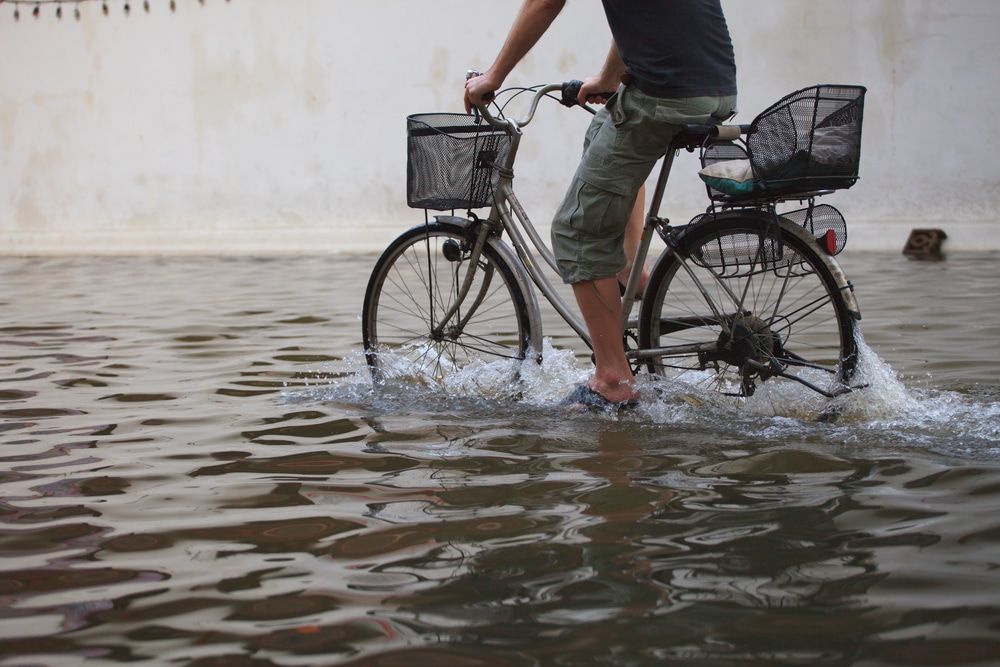Move or spend a lot of money: The choices rising seas impose on coastal residents
By Emily Holden | November 30, 2018
 Biking through floodwater. Image courtesy of Shutterstock.
Biking through floodwater. Image courtesy of Shutterstock.
Editor’s note: This story was originally published by The Guardian as one part of a week-long series. This one article from it appears here as part of the Climate Desk collaboration.
In this fourth part of our series looking at the 1,656-page climate report Trump tried to bury over Thanksgiving, we examine how sea-level rise will reshape the population.
- Part 1: How air pollution could end up killing you
- Part 2: How limiting greenhouse gases would substantially benefit the US economy
- Part 3: Why water will be the next battleground in the fight against climate change
Donald Trump doesn’t believe his own government’s major report on climate change – which the administration tried to bury over the Thanksgiving break. It warns that rising temperatures are already harming America and will cause huge damage globally.
Coastal residents in danger will have to spend or retreat. US coastal communities are already bearing the brunt of rising seas and more extreme weather made worse by climate change, as was evident with the vicious 2017 hurricane season.
Sea-level rise could reshape the country’s population distribution, resulting in 13.1 million people who might need to migrate by 2100 if the oceans are 6ft higher (which is actually 2ft lower than the most extreme scenario estimated). That will be expensive. Already, the federal government spent $48m to resettle a tribe in Louisiana.
The US is losing more than 80,000 acres of coastal wetlands per year, mostly in the Gulf of Mexico. By 2100, the US is likely to lose an additional 16% of wetlands.
The wetlands are valuable ecosystems that protect humans from storms, reduce erosion from waves, enhance water quality and support fisheries and recreation. They also are sinks for the carbon dioxide from power plants, cars and industry that causes climate change. As they are degraded, they will not be able to soak up as much CO2.
The National Climate Assessment raises tough questions about whether people will retreat, accommodate or protect against harsher storms and disappearing land. Helping people adapt to climate change along the coast is a difficult political proposition, as some property owners can afford to modify their homes or move while others cannot.
Coastal cities – including Boston, New York, Miami, San Francisco, New Orleans and Los Angeles – are already spending to adapt to sea-level rise and more frequent flooding. But the resources they are allocating are not enough to meet future threats, the report notes.
Together, we make the world safer.
The Bulletin elevates expert voices above the noise. But as an independent nonprofit organization, our operations depend on the support of readers like you. Help us continue to deliver quality journalism that holds leaders accountable. Your support of our work at any level is important. In return, we promise our coverage will be understandable, influential, vigilant, solution-oriented, and fair-minded. Together we can make a difference.
Keywords: cities and climate change, climate adaptation, sea level rise
Topics: Analysis, Climate Change















